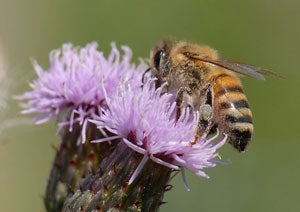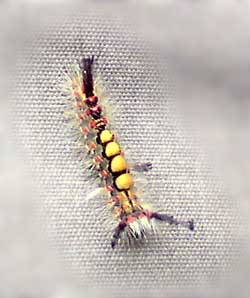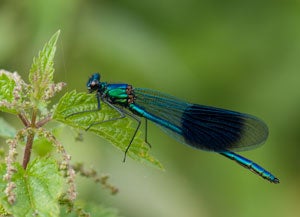Nature – What is it all About?
I have said it in threads on the forums of this site many times before that I don’t believe in God or any supposed supernatural being that’s in charge of our destiny or for that matter looks after us when we finally depart this life. What will happen then? Pretty much the same as what happened to us before we were born: nothing.
It neither worries or even concerns me, and why should it? When we are dead, we are dead. It happens in nature every day, the fight for survival, the hunter and the prey. Does it worry them?
My Belief
What I do believe in is nature, the environment and evolution, the things we can see and observe by way of changes each and every day of our lives. For me nature is my deity, the environment is my temple, and the story of evolution my bible.
I can grab the dog lead, attach it to my dog’s collar and within five minutes be walking through some lovely woodland. Or I can grab a rod, a bag of gear, a chair and a landing net and within 10 minutes be sitting on the banks of the Thames admiring it in all its beauty. These are the bits of my heaven here on earth.
But what is nature, or more precisely, is there a Mother Nature?
The answer is a firm ‘no’. It’s a name we have conjured up, like God, to cover all the things that exist on our Earth, out there, beyond the garden fence, so to speak. The truth is there is nothing in charge of nature, no super-brain, and left to her own devices nature is chaos, anarchy, and disorder. A setting in which the fittest shall survive, the weakest fail, where bullying and intimidation, predation and the greater mind hold power and dominion over all else.
In such a situation anything that can happen will happen and whatever the consequences, who or whatever is harmed in the process does not matter to nature. Whether it be a great hurricane, a tornado, a deluge, earthquake, volcanic eruption, tsunami, and however many human lives or the lives of other animals it takes with it, nature just doesn’t give a damn. Life will continue for the lucky survivors.
  “The happiness of the bee and the dolphin is to exist” – Jacques Cousteau |
I once heard on TV from a gamekeeper that “Nature is neither kind nor cruel; just merely indifferent.” That’s a nice way of putting it, “couldn’t care less” might be a more appropriate way and yet we humans love it, we love being amongst it. Or as Jacques Cousteau put it, “The happiness of the bee and the dolphin is to exist. For man, it is to know that and to wonder at it.”
How true, but that doesn’t escape the fact that left to herself nature is generally untidy. Oh sure, the branch that falls will eventually rot and become part of the soil again, and given a few million years may even become part of a lump of coal. It takes time though and meanwhile it gets in the way of other things wanting that space in which to grow or live. True, some life will benefit from rotting vegetation and other life will benefit from feeding on that other life and so the cycle goes on until you get to the top.
Man and his Role in all of This?
It is true that as soon as man places his muddy footprint on nature he starts to change it, sculpture it, manage it as he must. In a woodland, wherever he marks his paths, he denies space to the wild creatures and plants, just the same as on the riverbank. Theoretically, man does not belong in nature at all, he is its arch enemy, he is far too neat and orderly, hence he designs country parks and gardens where his fellow beings can wonder at samples of nature’s beauty in comfort, without getting their shoes dirty.
Leave a space long enough and it becomes overgrown, first with grasses, then nettles. Then the harder weeds like brambles take over, followed by bushes, and finally trees might manage to push through and form the canopy. It’s known as ‘succession’ in some botanical circles and you can’t stop it because in nature everything is an opportunist. Find a little space not in use by anything else and something will colonise it. If it is in use by something else, strangle it, dominate it and rise above it.

Where nature meets man
So what about ‘the balance of nature’? There is no such thing, a figment of our imagination for the balance changes every so often with some species diminishing and others proliferating, depending on conditions and a supply of food. If there is an equilibrium then its goal posts move and change, they are not fixed.
Nature is not out of balance when one species that didn’t figure in the equation some years before now becomes a dominant species, but that balance may not suit us. As is the case with cormorants, for example. Before the 80s we hardly saw a cormorant except on rock cliffs and yet, suddenly, every river and lake in the country was infested with them. Had they not been piscavores we probably would have ignored them, but we couldn’t. We made moves to change things by managing their numbers better, shooting them being the chief answer.
Man is the dominant species on this planet and we will have it our way, so is this bad for nature? Not really, because in general we are pretty sociable beings, a bit like bees and ants, and we tend to try and look after everything providing it fits neatly into its allotted space and doesn’t encroach on the bits that we need, like the patio or the potato field. We like to see a variety of everything (well, apart from rats and wasps) in fairly equal proportions as we see fit and providing it all gets along with each other.
(Author’s note: I hate wasps the most, they’re hateful creatures with little purpose in life. I also hate rats, but their one saving grace is that they tend to eat wasp’s nests.)
 What we try and achieve that nature doesn’t is that we inflict that balance of nature; our sense of balance that is. So we dig new holes to extract gravel for our roads and the holes fill with water (sometimes) allowing aquatic plants and fish to develop and thrive. We, anglers, try to ensure there’s a reasonable spread of species that will get along and some additional predatory ones that will help to keep the remainder in check. We define what the balance is and even if it seems for selfish reasons (our angling pleasure) it seems to be pretty good for nature too.
What we try and achieve that nature doesn’t is that we inflict that balance of nature; our sense of balance that is. So we dig new holes to extract gravel for our roads and the holes fill with water (sometimes) allowing aquatic plants and fish to develop and thrive. We, anglers, try to ensure there’s a reasonable spread of species that will get along and some additional predatory ones that will help to keep the remainder in check. We define what the balance is and even if it seems for selfish reasons (our angling pleasure) it seems to be pretty good for nature too.
If nature allows this balance to shift to one we do not want, ie, by allowing one specie to overpopulate, then we take the best advice we can get and we adjust the ‘balance’ to suit ourselves by removing and, if necessary, killing or moving the unwanted species. It’s known as a cull. It’s exactly what we would do with a fish tank or pond at home and providing it is not carried through to complete eradication of a specie, then it is not necessarily a bad thing.
The thing is, when we have finished readjusting the balance to how we originally had those ‘goal posts’ can we still look upon it and call it nature? The answer to that is ‘Yes!’ All that we have done is put together those elements that we took from nature in the first place and ordered them to suit us. Providing we haven’t threatened or directly affected any species to the point of total extinction, and ensure that is always the case, then we have done well and should be proud of it.
Encouraging Improvement
With this in mind I have been proposing to the TFCC (Thames Fisheries Consultative Council) that we should have some incentives for angling clubs (although other clubs could also be involved) to do more to improve their fisheries for the benefit of all nature. This might include the planting of trees, clearing a drainage ditch that feeds a lake, seeding new areas for wild flowers, perhaps creating complimentary swims and perhaps with some for the disabled, improving aquatic plant life that will benefit the fish. Almost anything in fact that will be of benefit to the fishery, the environment, or to nature in general.
  |
I’m not sure what its title will be yet, but for the winning clubs there could be a small financial prize and there should certainly be a trophy of some description. I rather like the ones that my wife commissions for her company’s health and safety awards, they look fabulous with light shining through them and each is made from recycled glass. Whether I will be able to get all of this through committee or not I don’t know, but it is along these lines that we should be working.
Whilst I was secretary of one club, we invited down the County Council’s advisor on woodland management to view two lakes, one very secluded and the other on which water skiing took place. I wanted some advice on what trees to plant, what to remove and could any native flowers be sewn to improve insect life since I had in mind applying for a grant from a waste management company. We’d walked around one of the lakes and he suddenly said, “I don’t know what improvements you really want to see, but in half an hour I’ve just seen more species of dragonfly and damselfly than anywhere else I’ve visited.”
It’s amazing what you miss when it’s right in front of your eyes all the time. I hadn’t realised before just how many there were, but we had the downy emeralds, and the brown aeshna – they’re all hawkers. We also had the ruddy sympetrum (it’s a russet-red colour), the libellula depressa, a short fat-bodied blue one, all darters plus the common blue damselfly and the banded agrion, another blue-bodied damselfly with big black spots on its wings. Later, I also spotted the four spot libellula and the large red damselfly.
  |
Consider the number of times you have seen a kingfisher, often right in front of you perched in a tree. Yet, when the local bird watchers came down to one of our pits they jumped around all over the place when one flew past. So consider just how many people, members of the general public, who have never before set eyes on a kingfisher at all. There will be quite a few, but for anglers it is all part of the glory of nature we are free to enjoy.
More Than Just Seeing
For me now, it’s not so much, “Ooh! There’s a kingfisher,” but more of trying to understand it. The struggles each creature, whether a bird, an insect or a small mammal, goes through each day to feed itself just to stay alive.
I will never forget one day whilst fishing on another very large pit and it was chucking it down with rain. I must have spent around four hours sitting under the umbrella when I heard a small rustling in the reeds to my left. Eventually this little water shrew appeared, crept along the bank, over a small stick, onto my Wellington on the other side of which, was my tub of maggots. He stuck his long snout into the tray, grabbed a maggot and quickly shot back into the reeds from where he had come. This didn’t happen once, but at least a dozen more times and I was so frightened of moving a muscle in case my foot wasn’t in the right place the next time and it scared him off.
These close encounters are something we anglers are blessed with because for much of the time we sit peacefully and patiently waiting for a bite and we can treasure those moments when they come. Even if we can’t take photographs (I had no camera that day and a flash would have been required and that would have scared the shrew away) we can still close our eyes years later and recall the event almost precisely. We have no need to convince anyone else because the encounter is quite personal anyway and others perhaps wouldn’t understand or even appreciate those moments in the same way we do.
The Opposite
I watched a programme on TV the other day about people who are addicted to the Internet and mobile texting, and all the latest forms of communication, but taking them to excess. A segment featured a young man, grossly overweight and disgustingly untidy, who spent most of his waking day transfixed to his PC, posting junk and reviewing forums. He had a collection of Internet friends all within walking distance who he’d never met. I thought, how sad!
Now I’m not saying that you, dear reader, are sad or that many of the regular posters on our forums are sad, but there is another life going on out there. By all means come on to Fishingmagic and share with us your experiences, crack a joke, ask your questions, improve your knowledge, but at the end of the day don’t be like this couch-potato – just get out there, do it and enjoy it as well.










